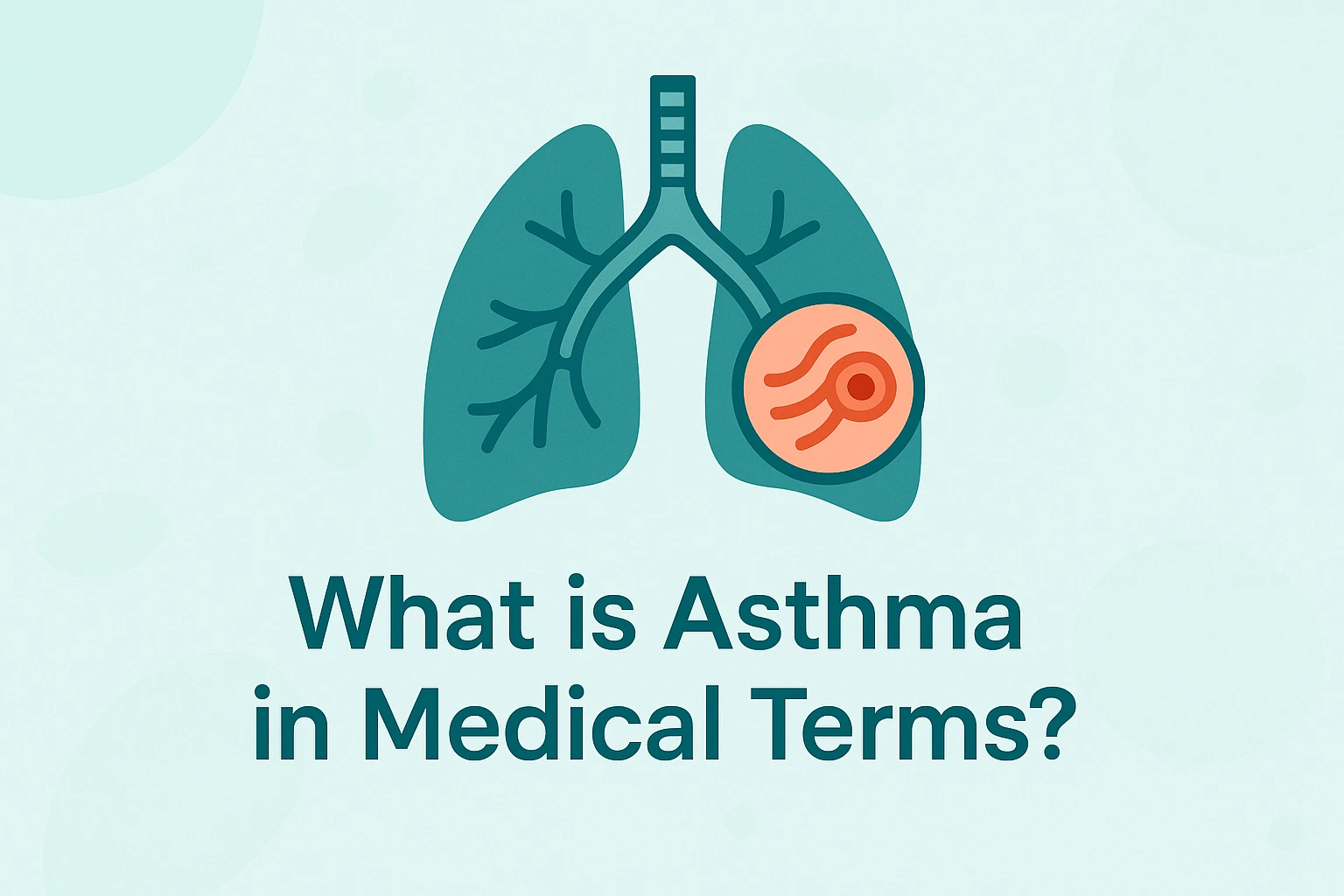Asthma is a chronic respiratory condition that causes inflammation and narrowing of the airways in the lungs, leading to difficulty breathing. This condition is marked by episodes of wheezing, shortness of breath, chest tightness, and coughing, particularly at night or in the early morning. While asthma symptoms can vary in severity, they can be controlled with the right management and treatment.
If you experience frequent coughing, wheezing, or shortness of breath, it’s important to consult a healthcare professional for proper diagnosis and treatment.

Types of Asthma:
- Allergic Asthma: Triggered by allergens such as pollen, dust mites, or pet dander, allergic asthma is the most common type and often begins in childhood.
- Non-Allergic Asthma: Triggered by factors like stress, cold air, exercise, or respiratory infections, this type is not caused by allergies.
- Exercise-Induced Asthma: This occurs when physical activity, particularly in cold or dry air, causes the airways to tighten and restrict airflow.
- Occupational Asthma: Caused by exposure to irritants or allergens at the workplace, such as chemicals, dust, or fumes.
Symptoms of Asthma
Symptoms of asthma include: various respiratory issues that can differ in severity.
- Wheezing or whistling sound when breathing
- Shortness of breath
- Chest tightness or pain
- Persistent cough, especially at night
- Difficulty sleeping due to breathing problems
Causes of Asthma
Common causes and risk factors for asthma include: these often involve airway inflammation and sensitivity.
- Allergies to pollen, dust mites, or pet dander
- Respiratory infections, particularly in childhood
- Exposure to tobacco smoke or air pollution
- Physical activity, especially in cold air
- Weather changes, such as heat or humidity
When to See a Doctor Asthma?
Seek medical advice for asthma if: you have severe symptoms like difficulty breathing, chest pain, or confusion. If you faint or experience rapid worsening of symptoms, seek emergency care immediately.
Related Terms of Asthma
FAQs for Asthma
When should I go to the ER for asthma?
If you experience severe difficulty breathing, chest pain, or confusion, seek emergency care immediately.
How can heat and dehydration affect asthma?
In hot weather, dehydration can exacerbate asthma symptoms, especially during long-haul flights or fasting.
What are some ways to reduce asthma risk?
Identifying and avoiding triggers, maintaining a healthy lifestyle, and staying informed can help manage asthma risk.
